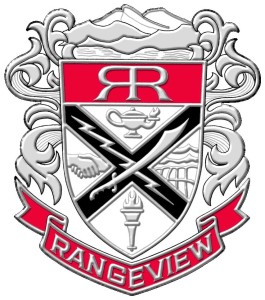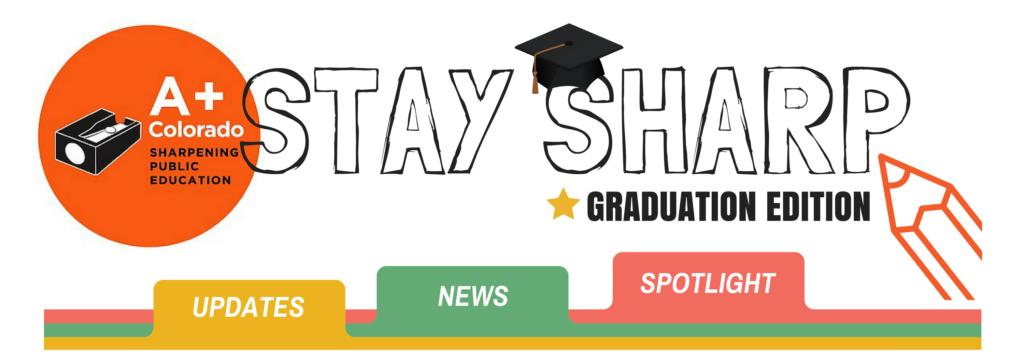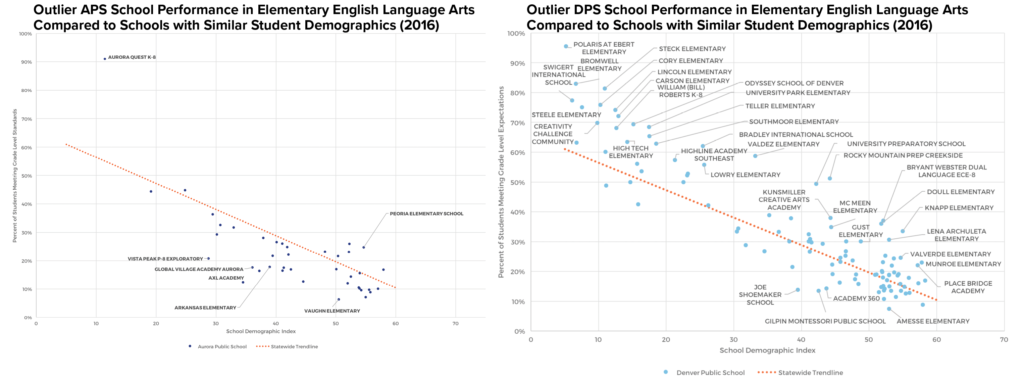A+ Updates
Again, We Started with the Facts
On May 9, A+ came out our latest report on the progress of student achievement in Denver Public Schools. Read the report today!
News to Share
Equal Money for All School Types
Colorado took a huge step forward by passing HB 1375 which will, at long last, equalize funding for district and charter schools. We are thankful for the bi-partisan leadership from Representatives Lang Sias (R) and Brittany Pettersen (D) in the House, and Senators Owen Hill (R) and Angela Williams (D) in the Senate that got this important piece of legislation passed. Schools will also end up getting a very slight boost in funding overall but the legislature kicked the bigger structural problem of underfunding schools and along with the huge disparity in funding for different parts of the state to a future session. Colorado kids deserve to have access to quality public education which includes science and arts regardless of where they live.
Resolved: Keep Aurora Public Schools a Safe and Inclusive School Community
At the May 2nd Aurora Public Schools Board of Education Meeting, dozens of community members stood in solidarity with community leaders from RISE Colorado who testified in favor of a resolution to keep Aurora Public Schools a safe and inclusive school community. The resolution is a response to the growing concerns in refugee and immigrant communities about schools sharing students’ or families’ immigration status with Immigration and Customs Enforcement (ICE). The document points to Plyer vs. Doe, the Supreme Court case that upholds the right of all students, regardless of immigration status, to have access to a public education, as a reason for adopting the resolution. As it stands in draft form, the resolution would have the district create systems and structures for how to respond if a student’s guardian cannot pick them up for any reason; translate and disseminate the district policy on interactions with ICE to all teachers, families, and school leaders; ensure schools follow FERPA regulations in sharing information with ICE; and allow community groups to present “Know Your Rights” workshops at schools.
Get Out of Jail Free Card for Failing Districts
We were disappointed to see the Colorado State Board Education rubber stamp the plans for Aurora, Pueblo 60, Westminster 50 and Adams 14. The turnaround plans do not lend much confidence that the districts will be able to better support students who have been trapped in these failing schools for more than five (and sometimes more than 10) years. We are thankful for signs from state board members Steve Durham (R), Rebecca McClellan (D), Pam Mazanec (R), and Joyce Rankin (R) that not all plans will be unanimously approved without a tough question regarding why all of the previous efforts in these schools have failed and what makes the latest efforts likely to succeed. It is disheartening to watch Colorado move from one of the states most committed to ensuring that all students are prepared for career and college (in terms of policy) to now being a state that will allow school districts to operate schools that will not teach most students even the most basic writing, reading, and math skills. Regardless of your opinion about state involvement in schools, we know that if we do nothing most of the students in these schools will not gain the knowledge or skills to succeed in today’s economy.
Still Data Poor
Students wrapped up the third administration of CMAS PARCC last month (and the 21st administration of any assessment linked to Colorado’s education standards). A key intention of these tests? To give students, families, educators, community members, and policymakers a (comparable) indication of whether schools are supporting students to learn what they need to know and be able to do at a given grade. Part of this is providing transparency. And yet much of the data remains masked or unreported. From 2015, CDE masked around 70% of the data in the disaggregated files (by free/reduced price lunch eligibility, by race/ethnicity etc.). CDE has always masked for small cohorts—around 50% of the data, but there were ways to aggregate that information in Data Lab and other tools that are now unavailable. None of that data from 2016 has been released even though it has been over a year after kids took the test. In the shift from reporting whether or not students were reaching grade level expectations to reporting average scale scores as the achievement indicator in the accountability system, CDE has not yet released information on groups of students not included in that system from 2015 or 2016. For example, CDE reported the average score of all students eligible for free or reduced price lunch but not those who were ineligible, making gaps very difficult to understand. While eyes may glaze over at all this talk of data, it means we’re flying blind about critical issues in our education system like academic success and opportunity, (in)equity, and civil rights.
Decisions, Decisions, Decisions: DPS Board Update
The DPS board will make a series of important decisions regarding new school approvals and which schools will replace Amesse and Greenlee elementary schools under the district’s new School Performance Compact. We are thrilled to see so many quality applicants competing to provide a quality school in the Amesse facility. We wish we could say there were the same number of high quality applicants for Greenlee. As DPS considers all new school applications (13 of which are replications of existing schools), it’s worth asking whether the Denver community is attracting and supporting enough bold new school proposals that could take students where they need to go? Are the system and community appropriately balancing the replication of existing high performing schools with new innovative approaches?
Raise The Bar
Denver has a huge challenge (as do most Colorado school districts) of raising the bar of support and expectations for high schoolers. We are pleased to see DPS hire Nicole Veltze to oversee the district operated high schools. Nicole did an outstanding job of turning North High School around when it was on the brink of being closed. We hope that she can bring her leadership and knowledge of instruction to other high schools in the district that have struggled to deliver a program that prepares all students for career and college.
Compare and Contrast
Check out the differences between student outcomes in Denver and Aurora. First up, how elementary schools are doing relative to all schools in Colorado with similar student populations. Many Denver elementary schools outperform the trendline, and include schools of different governance types (charter, innovation, or traditional public). Unfortunately, we cannot say the same for Aurora’s elementary schools where we see very few schools breaking the trend. Most of Aurora’s school continue to underperform relative to similar schools. Both Denver and Aurora have a lot of work to do to increase overall proficiency levels, but we hope that APS can learn some lessons from DPS elementary schools that are bucking the trends.
Both Aurora and Denver have a very long way to go in terms of delivering a quality education particularly for low-income, Latinx, and Black students. Check out the comparison charts below. The average Aurora Latinx student scored 16.6 on the ACT last year with high school graduation rate of 62% (state average 70%) while Denver’s average Latinx student scored 17.2 with a graduation rate of 63%.
Spotlight: Rangeview High School

Last month, the Rangeview Raider Review, Rangeview High School’s student newspaper, invited A+ Colorado’s Liz Reetz to discuss our latest Aurora Public Schools report. Rangeview’s student paper reports on issues as varied as the APS budget crisis, birth control, and “prom-posals.” After reading their reporting on the budget crisis and school board member Eric Nelson, it becomes clear that these students are deeply engaging in these school district policy conversations. District Advocacy Director, Liz Reetz, who focuses her efforts in Aurora, visited the journalism class to discuss the creation of the report and answer difficult questions about the policy recommendations and value of writing reports like Start with the Facts: Aurora Public Schools. They have since produced an opinion article aiming a critical eye at Start with the Facts. We admire their courage and critical thinking skills. Their precocious questions and ferocity of spirit give us hope for the future of education advocacy. Student journalism is a potent tool for school and district improvement. A+ is excited to continue to follow APS students reporting on important issues and decisions facing the district.
A+ in the News
Colorado’s ESSA Plan Doesn’t Quite Get All Kids Across the Goal Line, Lisa for Education Post
Some Denver schools beat the odds, but new report says more gains needed districtwide, Chalkbeat
The New Teacher-Evaluation Laws: Education’s Pyrrhic Victory, Van for Education Week
Even After Colorado’s Teacher Evaluation ‘Revolution,’ Fewer Than One in 1,000 Rated Ineffective, the 74
A+ Colorado Rebukes State Board for Lack of Accountability, PIE Network



